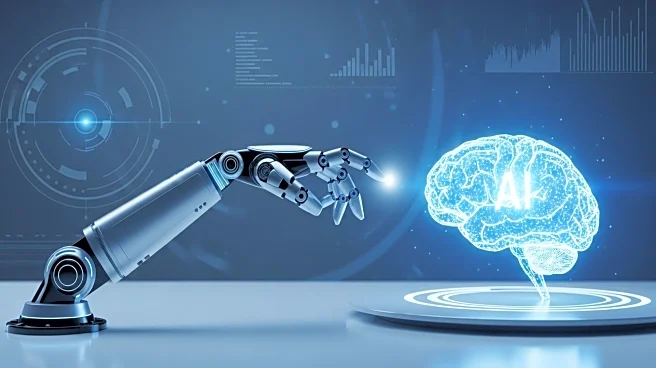What is the story about?
What's Happening?
A recent survey conducted by Resume.org indicates that nearly 4 in 10 companies plan to replace workers with AI by 2026. Currently, 3 in 10 companies have already implemented AI to replace certain jobs. The survey, which included 1,000 U.S. business leaders, highlights a significant shift towards AI adoption, driven by economic uncertainty, trade policy, and the pursuit of cost efficiency. High-salary employees and those lacking AI-related skills are at the highest risk for layoffs. The survey also notes a trend towards leaner, tech-ready workforces, emphasizing the need for professionals to reskill in AI and emerging technologies.
Why It's Important?
The anticipated increase in AI-driven job replacements underscores a transformative period for the U.S. labor market. As companies prioritize automation, there is a growing need for workers to acquire AI-related skills to remain competitive. This shift could lead to significant changes in employment patterns, with potential impacts on job security and career pathways. While AI offers opportunities for efficiency and innovation, it also raises concerns about job displacement and the need for ethical considerations in AI deployment. The focus on reskilling highlights the importance of adaptability and continuous learning in the evolving job market.
What's Next?
Companies are likely to continue investing in AI technologies, leading to further job displacement in routine and process-driven roles. As AI becomes more integrated into business operations, new job categories centered on AI oversight and human-AI collaboration may emerge. Employers may focus on upskilling workers in both technical and soft skills to maintain engagement and retention. Policymakers and industry leaders will need to address the broader implications of AI adoption, including workforce development and the ethical use of AI in employment decisions.
















